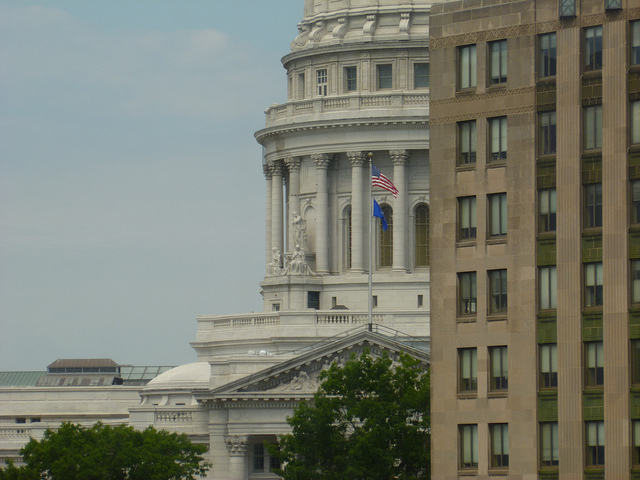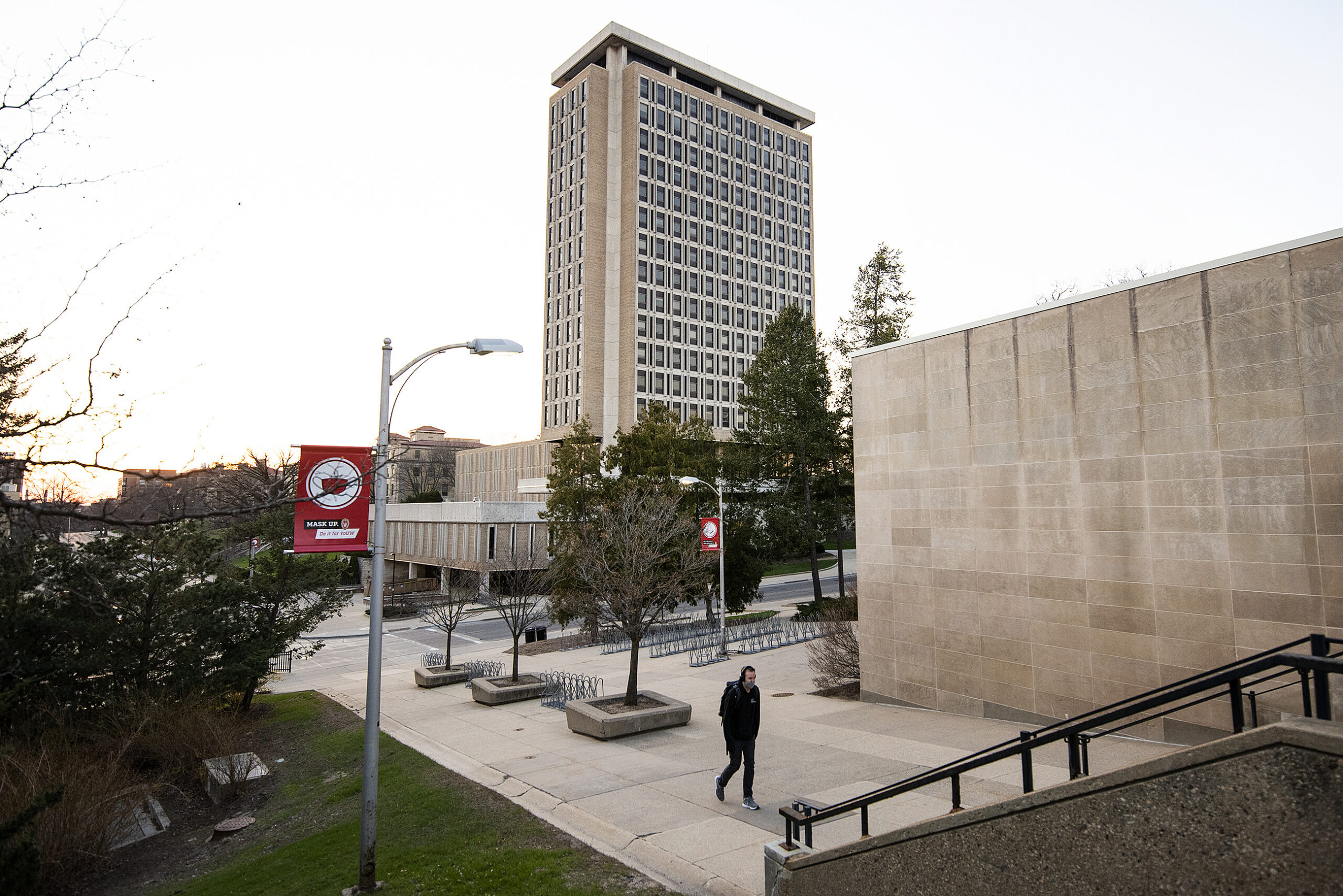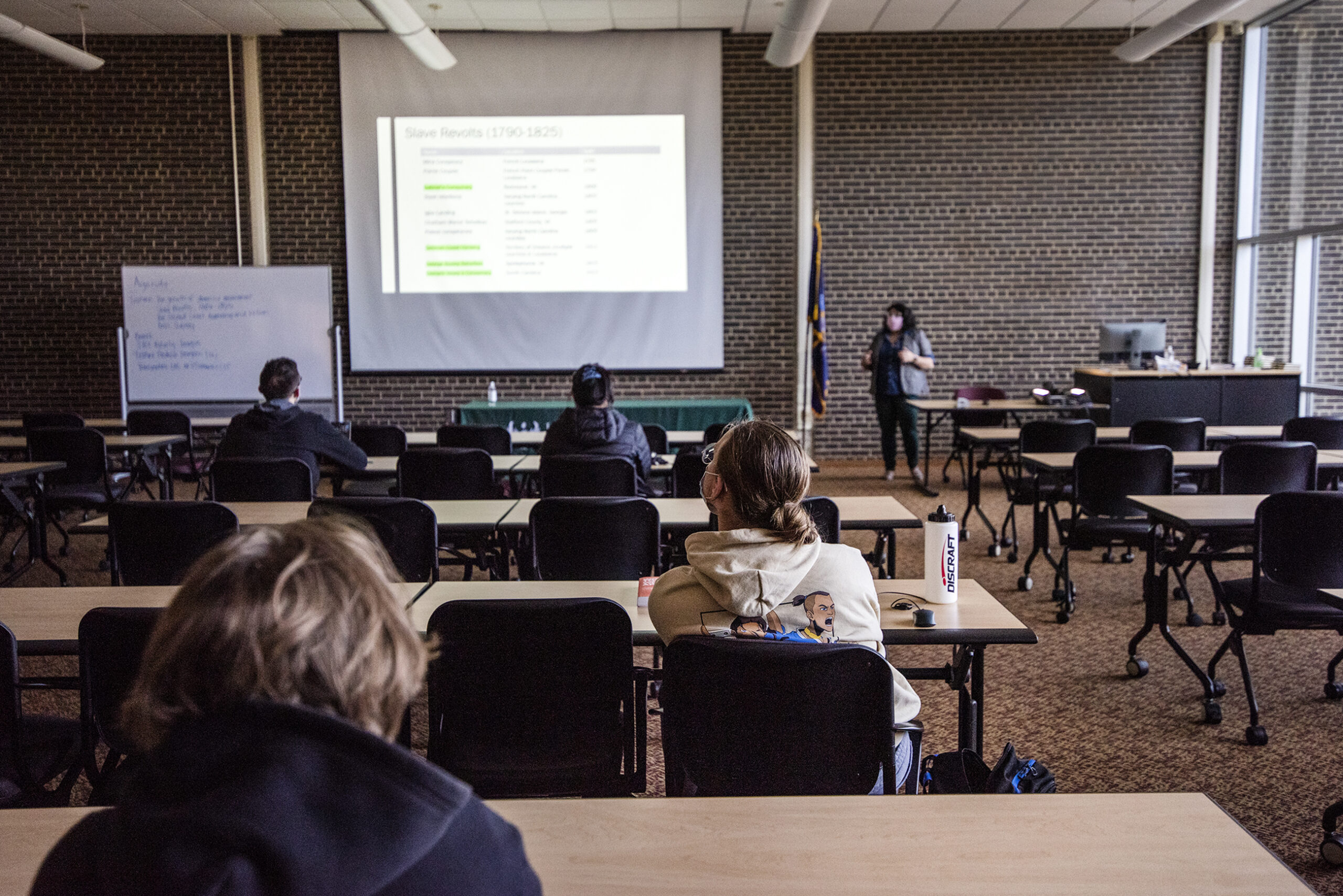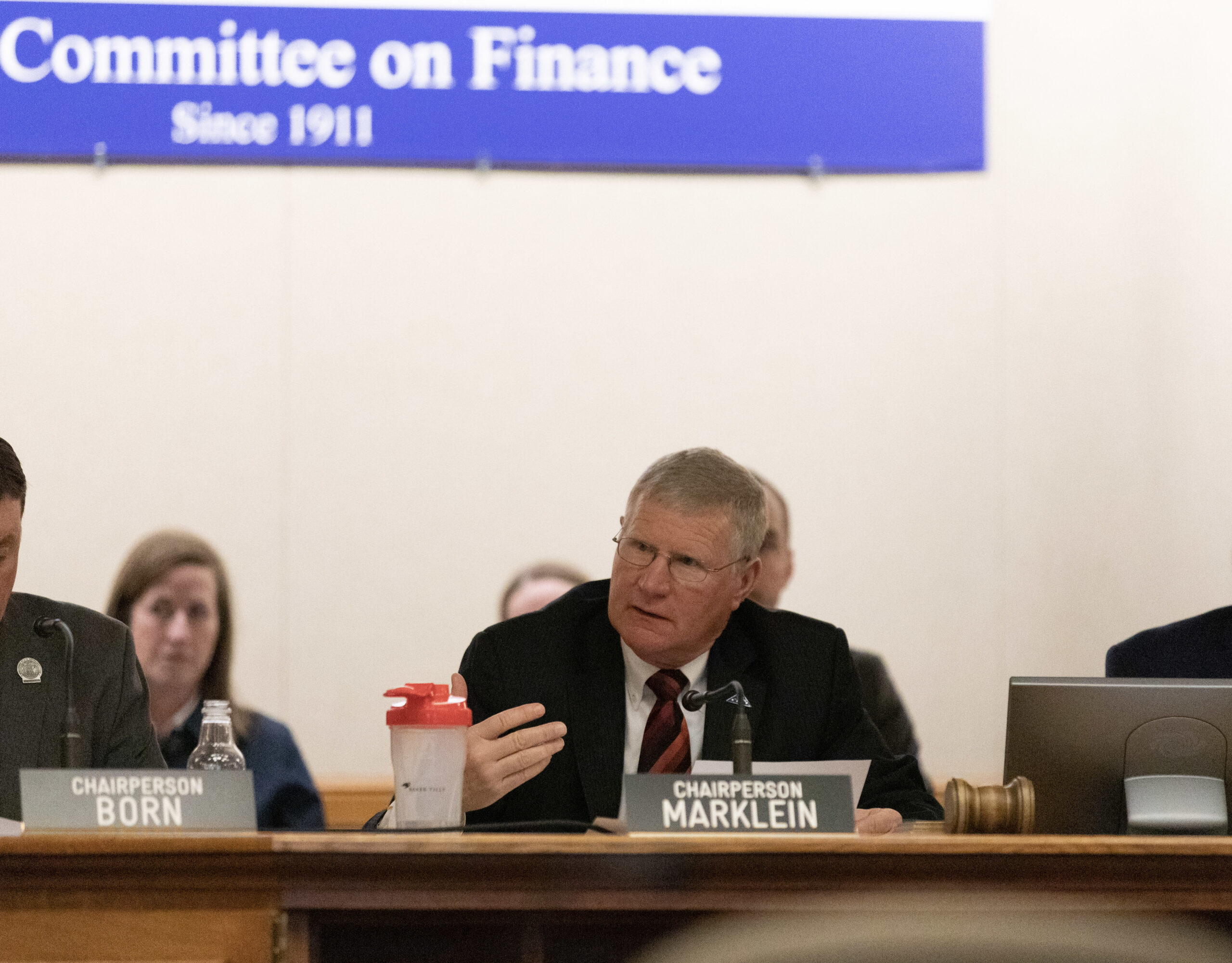Despite the political posturing in the week following Democratic Gov. Tony Evers’ first state budget address — a bipartisan group of lawmakers in southwestern Wisconsin expect a typical state budget process.
“I think there are going to be some areas that we can work with this administration on, issues like broadband expansion,” said State Sen. Patrick Testin, R-Stevens Point.
Testin said he also supports Evers’ efforts to improve water quality and expand industrial hemp production. But overall he said Evers’ plan is too costly.
Stay informed on the latest news
Sign up for WPR’s email newsletter.
“When you take a look at the total price tag of this proposed budget, it’s $83.5 billion, it’s almost a 10 percent increase of where we were last biennium and I don’t know how we’re going to pay for all these priorities he’s laid out,” he said.
Senate Minority Leader Jennifer Shilling, D-La Crosse, said she is pleased with Evers’ first budget.
“I heard a lot of things I’ve been waiting to hear for eight years,” she said.
Shilling likes the idea of investing in public education, a middle-class tax cut and criminal justice reform.
While Testin and Shilling don’t share the same views on everything in the budget proposal, they don’t waiver in the belief that it will be a normal process.
“The governor can only introduce one bill every two years — it’s the budget,” Shilling said.
“Gov. Evers has a very strong veto pen. The Wisconsin governor does regardless of party,” she added. “The governor has done this Herculean task of delivering the budget by the end of February. Now the Joint Finance Committee needs to meet and be briefed on it, with hearings around the state.”
In the lead-up and aftermath to Evers’ budget, Republican leaders expressed concerns it was a “liberal wish list” and have suggested that Republicans may write their own budget from scratch.
But other Republicans are rejecting a rewrite of Evers’ budget.
“I think the budget process is going to go on as it always has,” said Testin. “I don’t think you’re going to see a major deviation from the way budgets have been done in previous years, even under Gov. Walker.”
“I think there’s going to be things we agree on and there’s going to be things we’re not going to agree on and will be thrown out,” said state Rep. Tony Kurtz, R-Wonewoc. “I don’t think we’re going to start from scratch, but there’s a lot of work to do in at least the next 30 days and the foreseeable future.”
As a freshman legislator, Kurtz said he believed Evers and lawmakers will find agreement on a transportation plan to fixing Wisconsin’s roads.
Kurtz also likes plans to expand broadband and spend more money to work on issues of homelessness. However, he said he wishes the governor would have done more to help farmers in the budget.
State Rep. Jill Billings, D-La Crosse, said she’s pleased the state budget would accept federal money for a Medicaid expansion, more money for public education and transportation and money to improve the environment.
“I hope we’ll be able to come to the table and negotiate this out, because that’s what people in Wisconsin want us to do,” Billings said. “They don’t like when things end up in gridlock and nothing happens. I don’t blame them, they want a government that works for them.”
Wisconsin Public Radio, © Copyright 2024, Board of Regents of the University of Wisconsin System and Wisconsin Educational Communications Board.






